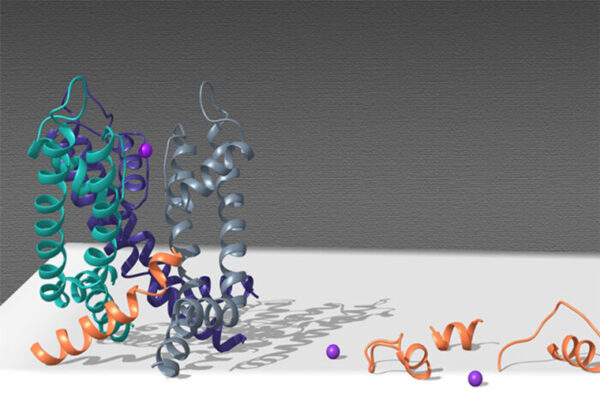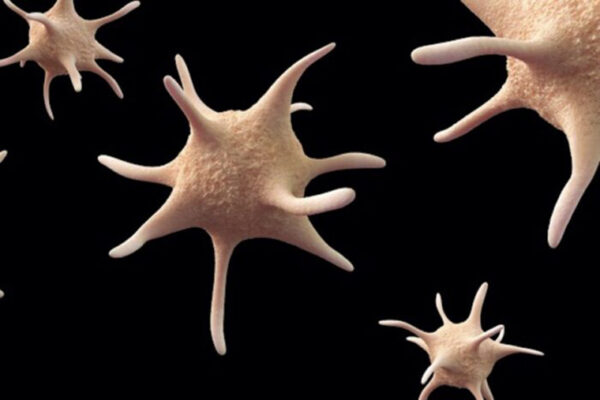Electrical signaling in cells focus of $8.8 million grant
Researchers at Washington University School of Medicine have received an eight-year, $8.8 million grant to study ion channels as potential targets for new drugs to treat disorders affecting the brain, heart and muscles.
New strategy blocks chronic lung disease in mice
A new study from Washington University School of Medicine in St. Louis has uncovered a previously unknown role for exosomes in inflammatory respiratory diseases. The study has implications for finding new therapies.
Apply for SPORE in Leukemia grants
Applications are now being accepted for the Specialized Programs of Research Excellence (SPORE) in Leukemia Career Enhancement Program and the Developmental Research Program, under principal investigator Daniel Link, MD, at the School of Medicine. Those interested should apply by April 30.
Postdoctoral scholar receives NIH fellowship award
Samantha Kirstin Barrick, a postdoctoral scholar in biochemistry and molecular biophysics and in the laboratory of Michael J. Greenberg at the School of Medicine, received a three-year $208,182 fellowship award from the National Heart, Lung, and Blood Institute of the National Institutes of Health (NIH).
For bleeding patients, can cold storage of platelets improve blood clotting?
Researchers at Washington University School of Medicine and the University of Minnesota Medical School are leading a large, multicenter study to find out whether maintaining platelets in cold storage is as effective in reducing blood loss as platelets stored at room temperature.
Antibody-based COVID-19 treatments work best in concert with immune cells
Researchers at the School of Medicine have discovered that the ability to interact with other elements of the immune system is an indispensable part of the effectiveness of monoclonal antibodies. The findings could help improve the design of the next generation of COVID-19 drugs.
Immune therapies for heart disease aim of international research network
An international team of researchers, including scientists at the School of Medicine, has formed a network to study the role of inflammation in heart disease, with a goal of finding new therapies to improve recovery after heart attacks.
Imoukhuede, Payne named AIMBE Fellows
Two faculty members from Washington University — Princess Imoukhuede and Philip R. O. Payne — have been named fellows of the American Institute for Medical and Biological Engineering (AIMBE). AIMBE’s College of Fellows is limited to the top 2% of medical and biological engineers.
Becker Library offers COVID-19 resource list
The university’s Bernard Becker Medical Library has compiled a COVID-19 resource guide, which includes information on the COVID-19 vaccine and its development as well as a list of vaccine pre-registration sites for community members in the St. Louis region.
Scientists to explore whether anti-inflammatory drugs control blood sugar
School of Medicine researchers have received a grant to investigate whether immunosuppressive drugs prescribed for inflammatory bowel disease or psoriasis also can control blood sugar levels.
Older Stories







